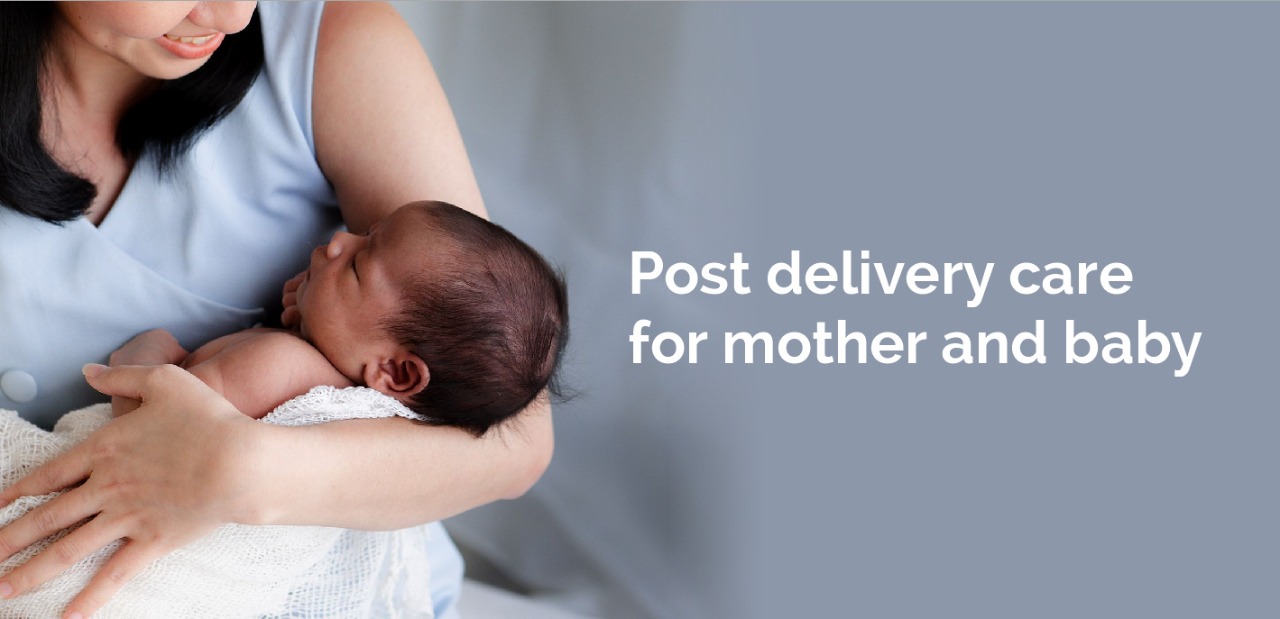
Post-Delivery Baby Care: A Comprehensive Guide for New Parents
The arrival of a newborn baby is a momentous occasion filled with joy and anticipation. However, it also brings with it a multitude of responsibilities, including the care of your precious little one. Post-delivery baby care is crucial for ensuring the well-being and development of your newborn. This comprehensive guide will provide you with all the essential information you need to know about caring for your baby in the first few weeks after birth.
Immediate Care After Delivery
- Skin-to-Skin Contact: Immediately after birth, your baby will be placed on your chest for skin-to-skin contact. This promotes bonding, regulates body temperature, and stimulates breastfeeding.
- Initial Examination: The healthcare provider will perform a thorough examination of your baby, including checking vital signs, weight, length, and head circumference.
- Apgar Score: The Apgar score is a quick assessment of your baby’s health at one and five minutes after birth. It evaluates heart rate, breathing, muscle tone, reflexes, and color.
- Vitamin K Injection: Your baby will receive a vitamin K injection to prevent bleeding disorders.
- Eye Ointment: An antibiotic eye ointment will be applied to prevent eye infections.
Feeding
- Breastfeeding: Breastfeeding is the recommended method of feeding for newborns. It provides optimal nutrition, promotes bonding, and reduces the risk of allergies and infections.
- Formula Feeding: If breastfeeding is not possible or desired, formula feeding is an alternative option. Choose a formula that is specifically designed for newborns.
- Feeding Frequency: Newborns need to feed frequently, every 2-3 hours or more often.
- Burping: Burp your baby after each feeding to release trapped air and prevent gas.
Diapering
- Diaper Changes: Newborns need to be changed frequently, especially in the first few days.
- Types of Diapers: There are various types of diapers available, including disposable, cloth, and biodegradable. Choose a diaper that is comfortable and absorbent.
- Diaper Rash: Diaper rash is a common problem in newborns. Prevent it by changing diapers frequently and using a diaper cream.
Bathing
- Frequency: Newborns do not need to be bathed daily. Sponge baths are sufficient until the umbilical cord falls off.
- Water Temperature: Use lukewarm water for bathing.
- Soap: Use a mild, unscented soap specifically designed for babies.
- Drying: Pat your baby dry gently with a soft towel.
Umbilical Cord Care
- Cleaning: Keep the umbilical cord clean and dry. Do not use alcohol or hydrogen peroxide.
- Falling Off: The umbilical cord will typically fall off within 1-2 weeks.
- Signs of Infection: If the cord becomes red, swollen, or foul-smelling, contact your healthcare provider immediately.
Sleep
- Sleep Patterns: Newborns sleep a lot, but their sleep patterns are irregular. They may sleep for short periods throughout the day and night.
- Swaddling: Swaddling can help create a cozy and secure environment for your baby, promoting sleep.
- Safe Sleep Practices: Always place your baby on their back to sleep on a firm mattress. Remove all soft objects, pillows, and blankets from the crib.
Other Care
- Nail Care: Trim your baby’s nails regularly to prevent scratching.
- Massage: Gentle massages can soothe and relax your baby.
- Tummy Time: Supervised tummy time helps strengthen your baby’s neck and back muscles.
- Crying: Crying is a normal way for newborns to communicate. Try to soothe your baby by feeding, changing their diaper, or rocking them.
Health Monitoring
- Jaundice: Jaundice is a common condition in newborns that causes yellowing of the skin and eyes. It usually resolves on its own within a few weeks.
- Fever: A fever in a newborn is a medical emergency. Contact your healthcare provider immediately if your baby’s temperature exceeds 100.4°F (38°C).
- Weight Loss: Newborns typically lose weight in the first few days after birth, but they should start gaining weight within a week.
- Wet and Dirty Diapers: Monitor the number of wet and dirty diapers your baby produces. This can indicate their hydration and feeding status.
When to Call the Doctor
Contact your healthcare provider if you notice any of the following signs or symptoms in your baby:
- Fever
- Difficulty breathing
- Persistent crying
- Lethargy or irritability
- Poor feeding
- Unusual skin rashes or discoloration
- Discharge from the eyes, nose, or ears
- Umbilical cord problems
Conclusion
Post-delivery baby care is an essential aspect of ensuring the health and well-being of your newborn. By following the guidelines outlined in this guide, you can provide your little one with the best possible care. Remember to trust your instincts and seek professional advice whenever you have any concerns. The journey of parenthood is filled with challenges and rewards, and the care you provide for your baby will lay the foundation for their future health and happiness.
